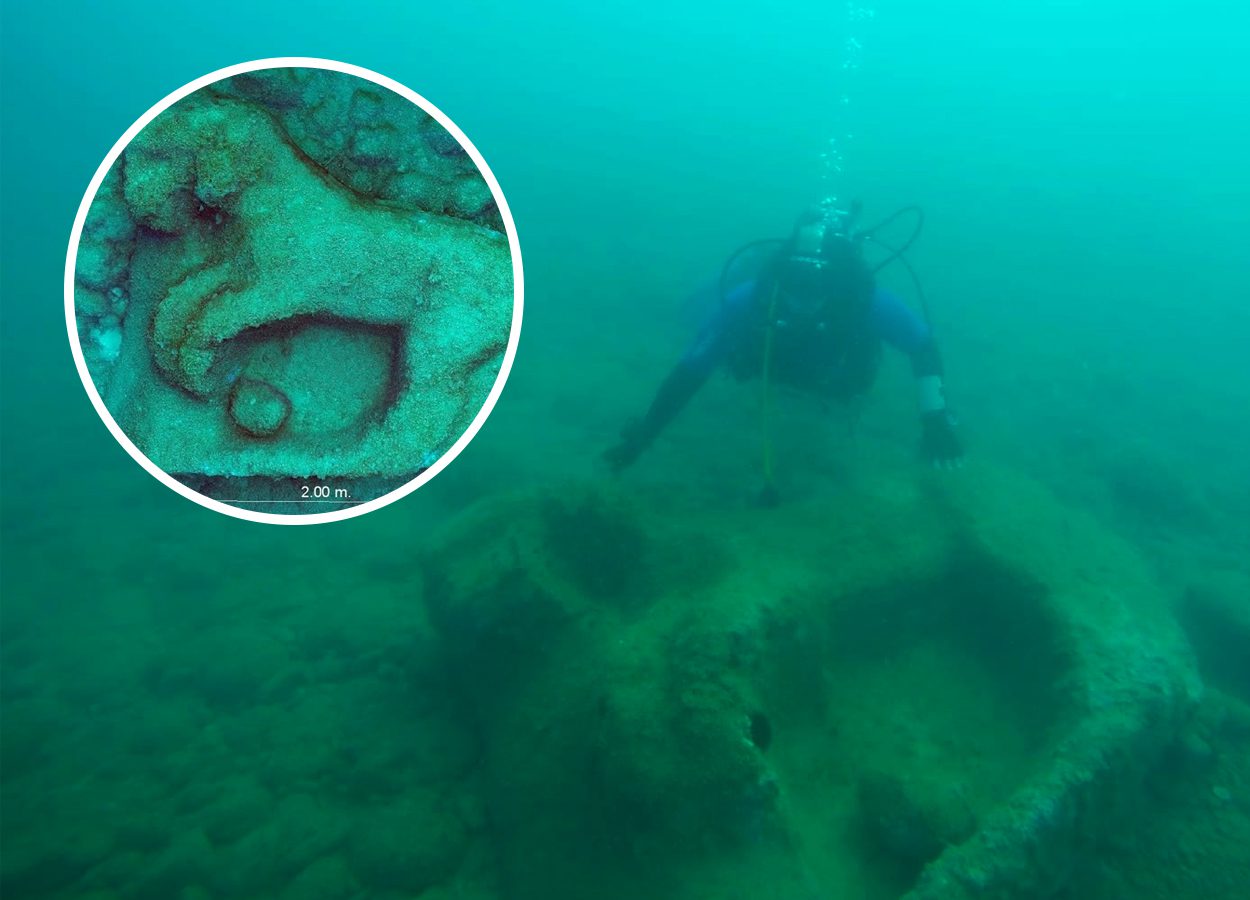Underwater archaeologists have announced the discovery of a submerged marble frieze block off the coastline of Sicily, which according to experts belonged to the Temple of Zeus in ancient Akragas.
The Temple of Zeus is a large doric temple located in the Valley of the Temples. The valley was a ceremonial centre associated with ancient Akragas (Agrigento), which includes the Temple of Concordia, the Temple of Juno, the Temple of Heracles, the Temple of Castor and Pollux, the Temple of Hephaestus (Vulcan), and the Temple of Asclepius.
The Temple of Zeus was one of the largest Doric temples ever constructed, measuring 112 metres in length by 56 metres in width.
Historical accounts from the Ancient Greek historian, Diodorus Siculus, reveal that the temple construction remained unfinished, halted by the Carthaginian conquest of Akragas in 406 BC. The temple was eventually toppled by earthquakes and in the 18th century was quarried extensively to provide building materials for nearby settlements.
In a press announcement by the BCsicilia non-profit group, underwater archaeologists found the marble block 300 metres from the Sicilian coast at a depth of 9 metres beneath the water surface.
The block measures approximately 2 metres in length by 1.6 metres in height, and is made from Proconnesian marble sourced from the quarries on the Turkish island of Marmara Adası.
On one side is a carved frieze depicting a prancing horse, which likely adorned the exterior tympanum facade of the temple structure. Horses were a typical artistic theme in important Ancient Greek structures, serving as a symbolic representation of power and strength.
A representative of BCsicilia told HeritageDaily: “The extraordinary discovery was immediately reported to the Superintendency of the Sea for the purpose of recovering the exceptional find, which was finally brought back to shore this morning.”
Header Image Credit : BCsicilia





